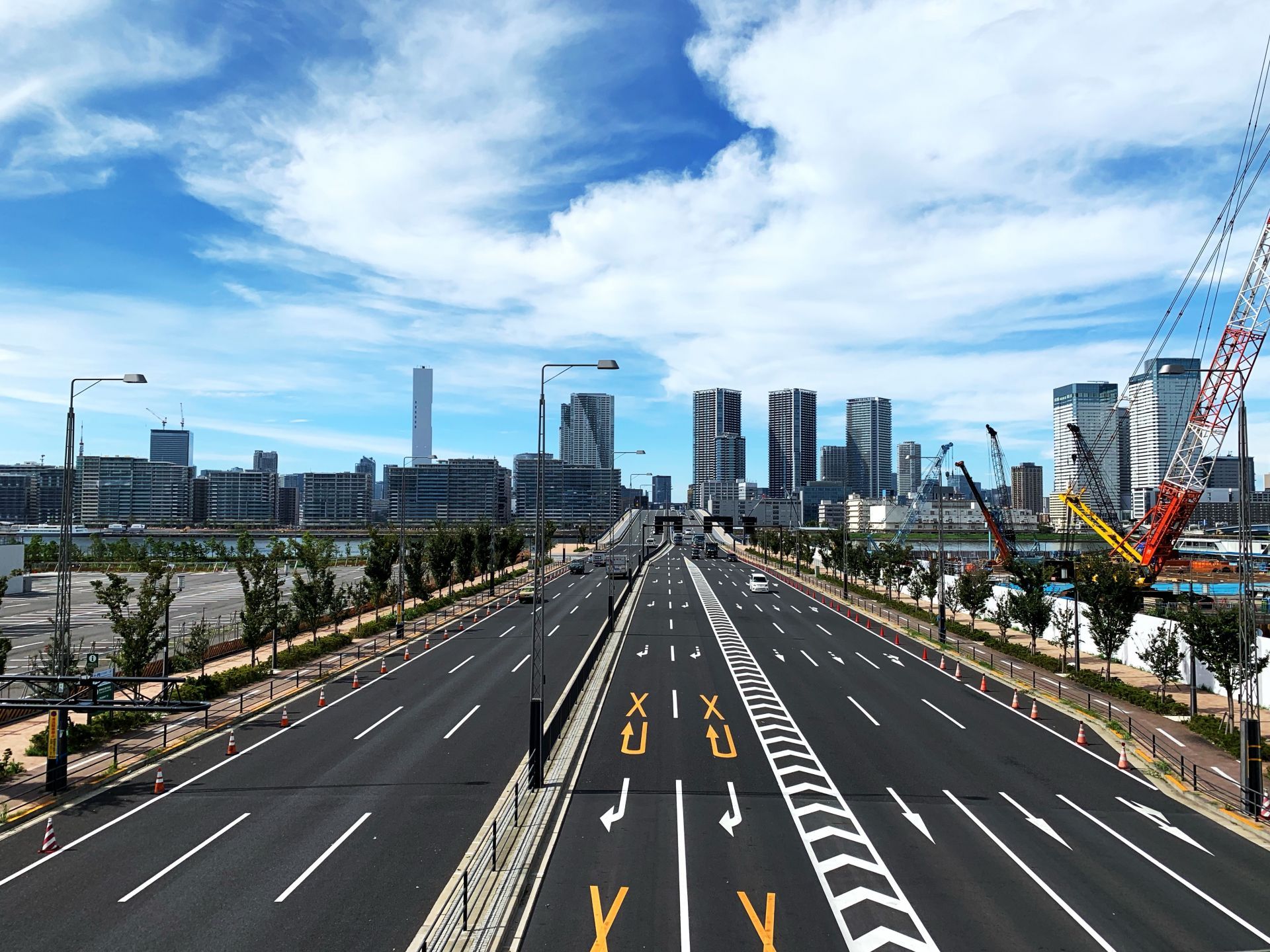Right to Travel
Feb 9
/
Dynamo Jakk
In our daily lives, we encounter numerous things that are legal under the law. Likewise, we also come across many things that are illegal according to the law of the land. As dutiful citizens, it is our responsibility to adhere to the law of the land, and in return, it is the obligation of the state to safeguard our rights.
The society in which we live mandates that we must, by default, be familiar with the law of the land; ignorance is not an acceptable excuse. For instance, if you are apprehended for driving under the influence, you cannot tell the officer that you were unaware that driving under the influence was against the law. Ignorance of the law does not exempt you from its application.
This implies that a responsible citizen must be aware of the laws that apply to them. Only through understanding the law can we become conscious of its applicability to us. Once we familiarize ourselves with the laws and our rights protected by them, we will realize that many practices can be approached differently from their current implementation. Similarly, gaining knowledge about laws will also help us recognize the significant infringements of our fundamental rights committed by the state under the pretext of regulating public behavior.
The general public remains unaware of many aspects of the law that pertain to their rights, which they should ideally be informed about. One such facet that commonly escapes public awareness is the right to travel within the country. The freedom of movement was constitutionally acknowledged as a judicial right following the Corfield vs. Coryell case. In this case, the court defined the right to movement as the "right of free ingress into other States, and egress from them." Moreover, over the years, the Supreme Court has consistently upheld the perspective that the authority to safeguard freedom of movement lies with the states rather than the Federal government.
In the case of Crandall vs. Nevada, the U.S. Supreme Court established that the right to freedom of movement is of such fundamental importance that states cannot hinder individuals from leaving a state by imposing taxes on them. Taxing people for relocating out of the state would therefore constitute an obstruction to their exercise of one of their fundamental rights.

When contemplating the right of movement, we recognize that it encompasses the mobility of individuals from one location to another. This can encompass movement between cities, across state lines, and even between countries. For the scope of this discussion, we will confine our focus to movement within the United States. It's important to note that laws undergo changes when one transitions beyond U.S. borders, entering international and foreign jurisdictions.
Within the United States, the right to travel is regarded as a fundamental right. Surprisingly, this means that you can traverse from the West coast to the East coast without holding a license, even in your personal vehicle, without the fear of being charged for driving without a license.
This assertion might seem implausible at first glance, right? Indeed, it does, as most individuals are conditioned to believe that a driver's license is mandatory for driving. Consider this: driving entails moving from point A to point B, and this movement constitutes your fundamental right. The law grants you this innate right to move, and the absence of a driver's license should not deprive you of this fundamental liberty. This might appear unconventional, but it's true—within the United States, you can indeed drive your private vehicle without a driver's license. This is valid as long as you are not operating a commercial vehicle. However, before embarking on such an endeavor, it is crucial to grasp the legal underpinnings behind this notion. Remember what was emphasized earlier: comprehensive knowledge of the law is imperative for your awareness and comprehension.
At first glance, driving without a license might appear unlawful, even exceptionally so. However, it is not. A law that infringes upon a fundamental right cannot be established. Numerous legal precedents support this notion, including:
"Where rights secured by the Constitution are involved,
there can be no rule making or legislation which would abrogate them."
Miranda vs. Arizona, 384 US 436, 491).
"The claim and exercise of a constitutional Right
cannot be converted into a crime."
MILLER VS. U.S.,( 230 F. 486, 489)
"There can be no sanction or penalty imposed upon
one because of this exercise of constitutional Rights."
SNERER VS. CULLEN, (481 F. 9460).
These legal precedents establish the foundation for the right of travel without requiring a license in your privately owned vehicle for personal purposes. The right to traverse roads and highways is an inherent and fundamental right. As long as an individual is journeying from one location to another using a road that has been financed through taxation, they cannot be impeded from moving for any reason whatsoever.

The construction of roads and highways relies on public funds, signifying that the general public possesses an inherent and fundamental entitlement to utilize these transportation routes for their daily commutes without any form of obstruction. It is imperative to comprehend that road usage is not a granted privilege; it is unequivocally a right.
It is not uncommon for some individuals to misinterpret this as a privilege, but this assumption is far from the truth. To clarify, while using roads and highways may be considered a privilege when engaging in business or commercial activities, this is not the case when using them for personal travel. For instance, if an individual is transporting passengers from one city to another for a fee, this would classify as commercial travel and therefore be considered a privilege. In contrast, if someone is traveling between cities in their privately owned vehicle, it remains a fundamental right and not a privilege.
This understanding is further supported by the legal precedent established in the case of Willis vs. Buck, which asserts:
"Heretofore the court has held, and we think correctly,
that while a Citizen has the Right to travel upon the public highways and to
transport his property thereon, that Right does not extend to the use of
the highways, either in whole or in part, as a place of business for private
gain."
BARNEY VS. BOARD OF RAILROAD COMMISSIONERS, (17 P.2D 82; WILLIS VS. BUCK, 263 P.L 982)
Consequently, the utilization of roads and highways for travel is, indeed, a fundamental right. However, if these same thoroughfares are employed for commercial objectives, then the classification changes to a privilege. This is due to the fact that the maintenance of these roads is sustained by public funds, and commercial enterprises do not possess an inherent entitlement to their utilization.
To this point, we have firmly established the notion that the freedom of movement and the right to travel stand as fundamental rights. Whenever an individual employs a vehicle for purposes unrelated to commerce, their right to travel remains inviolable. Any attempt to impede or curtail this right through legislative means would be unequivocally unconstitutional, as it directly infringes upon essential constitutional rights.
Now, let us delve into the concept of how the requirement for a license infringes upon this legal principle. By examining legal case precedents, it becomes evident that licenses have been defined in various legal cases as:
"The
permission, by competent authority to do an act which without permission,
would be illegal, a trespass, or a tort."
PEOPLE VS. HENDERSON, (218 NW.2D 2, 4)
This definition might lead you to believe that driving without a license is inherently unlawful. However, this definition is inherently flawed. If driving without permission from an authoritative body were to be deemed unlawful, the state would be tasked with proving that the act of ordinary travel in a vehicle, both for personal and business purposes, is an illicit activity. Subsequently, the government would need to justify the regulation of this assumed illegal activity by issuing licenses.
Do you see the contradiction in this perspective? If the government were to pursue this approach, it would directly contradict the foundational constitutional rights of travel and freedom of movement.
The government cannot subject unrestricted movement to the constraints of a license without first deeming it illegal. Because if it is not illegal, then there is no need for regulation. This analogy is akin to suggesting that you need a license to operate a vacuum cleaner within your own home, or that riding a bicycle requires a license. The principle is straightforward: if an action is legal, it should not require regulation; and if it is not inherently legal, it can then be subjected to regulation. The right to travel is a fundamental right and is unequivocally legal—it is not an illicit activity.
Consequently, a more appropriate and accurate definition of a license would be:
"a
permit, granted by an appropriate governmental body, generally for consideration,
to a person, firm, or corporation, to pursue some occupation or to
carry on some business which is subject to regulation under the police
power."
[EMPHASIS ADDED] ROSENBLATT VS. CALIFORNIA STATE BOARD OF PHARMACY, 158 P.2D 199, 203
This definition primarily pertains to business activities, thus imposing the necessity for a license on commercial endeavors—activities that we have determined fall under a privilege rather than an inherent right. It is crucial to note that law enforcement possesses the authority to "regulate" commercial travel only; they lack the authority to regulate non-commercial travel, as it falls within the ambit of a fundamental right protected by the constitution.
An oft-cited argument in favor of requiring driving licenses for private vehicles revolves around the notion that driving is inherently dangerous and thus necessitates regulation. In reality, driving itself is not inherently perilous; it becomes hazardous only when undertaken by an irresponsible individual. In the majority of instances, people simply seek to travel from one location to another, and few would deliberately jeopardize their own lives by driving recklessly. Given that driving is not intrinsically perilous, there exists no basis for regulation. Moreover, as we anticipate the advent of driverless vehicles, we must question whether authorities will seek to license cars themselves. This highlights the inherent fallacy of licensing requirements for driving.
Equally important is the understanding that driving essentially signifies the act of moving from one point to another—a fundamental right enshrined within the constitution. This right cannot be regulated, as we have earlier established. Furthermore, in cases where a law enforcement officer deems an individual to be driving irresponsibly, the law can indeed take action against that individual, but it must do so through due process. However, a single individual's actions cannot be used to deprive the broader populace of their fundamental rights.
"The right to travel is part of the Liberty of which a
citizen cannot deprived without due process of law under the Fifth
Amendment. This Right was emerging as early as the Magna Carta."
KENT VS. DULLES,(357 US 116 (1958))
The concept of due process inherently entails regulation, yet a critical issue arises when such regulation is utilized to curtail citizens' rights and freedoms. Presently, a concerning trend has emerged where citizens are mandated to possess a valid driving license to operate vehicles on roads. This ostensibly innocuous requirement, however, has led to an inadvertent surrender of fundamental rights, effectively transforming a constitutionally-protected right into a mere privilege.
In light of the preceding discussion, it becomes evident that the regulation necessitating a license for non-commercial driving is untenable. This regulation, in fact, warrants exposure as an oppressive statute that contradicts the very essence of the constitution. By misapplying this statute, the state has infringed upon citizens' constitutionally guaranteed rights, resulting in the deprivation of these essential liberties.



